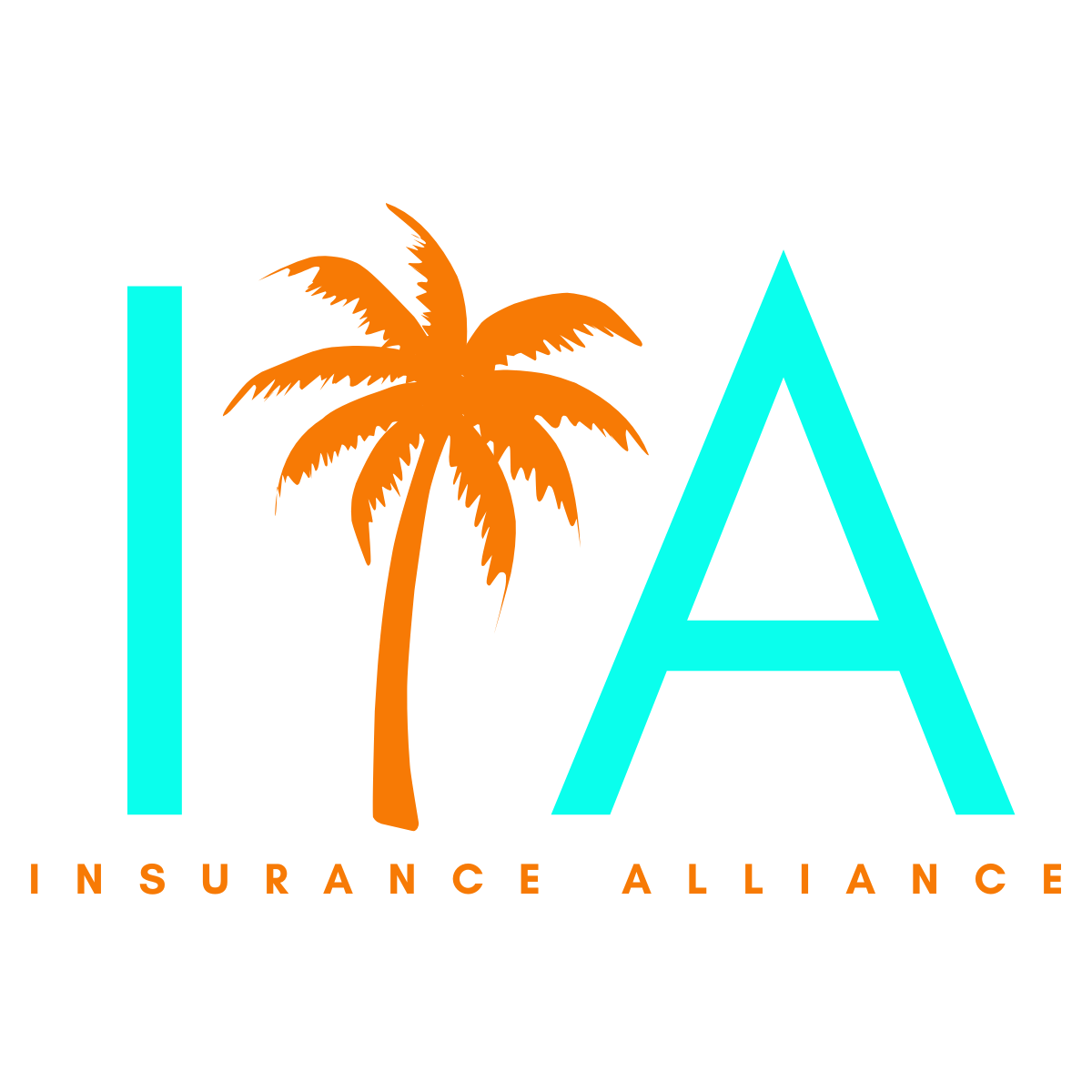Condo Insurance: What You Need to Know for Complete Protection
November 8, 2024
New Title

f you’re a condo owner, you’ve likely heard about condo insurance, or HO-6 insurance. Condo insurance is tailored to protect condo owners from potential financial losses caused by various risks. Whether you’re living in your condo full-time or using it as an investment property, understanding how condo insurance works can help you make informed decisions to safeguard your assets.
At Insurance Alliance LLC, we aim to help condo owners navigate the insurance landscape to ensure comprehensive coverage. Below, we break down the essentials of condo insurance, including what it covers, why it's necessary, and how to find the right policy.
1. What is Condo Insurance (HO-6 Insurance)?
Condo insurance, known as an HO-6 policy, is designed specifically for condominium units. Unlike homeowners insurance that covers the entire property, condo insurance focuses on the interior of your unit and your personal property. This type of policy is essential because your condominium association's master policy may only cover the building’s structure, common areas, and liability for incidents occurring outside individual units.
A condo insurance policy protects:
2. Why Condo Insurance is Important While condo associations typically have insurance covering the structure and shared spaces, these policies usually don’t protect the interiors of individual units or personal belongings. Here are some key reasons to consider purchasing condo insurance:
3. Understanding Your Association’s Master Policy Before purchasing condo insurance, it's crucial to review your condo association’s master policy. The master policy can vary in coverage, but they generally fall into three main types:
4. What Does Condo Insurance Cover? While coverage details vary, a standard condo insurance policy typically includes the following components: a. Dwelling Coverage This covers the interior of your unit, including walls, ceilings, and floors, as well as attached fixtures like built-in shelves and countertops. If a disaster like a fire damages your condo’s interior, dwelling coverage will help pay for repairs. b. Personal Property Coverage This part of your policy helps repair or replace personal items, such as furniture, electronics, clothing, and appliances, if they’re damaged or stolen. It’s essential to ensure your coverage limits match the value of your belongings. c. Liability Coverage If someone is injured within your unit, or if you accidentally damage someone else’s property, liability coverage can cover medical bills, legal fees, and settlement costs. This coverage protects you from potentially costly claims or lawsuits. d. Loss of Use Coverage Also known as additional living expenses (ALE), this coverage provides financial assistance if you’re temporarily displaced due to a covered event. It can help pay for hotel accommodations, meals, and other living expenses. e. Loss Assessment Coverage This covers any extra costs that your condo association may pass onto unit owners if a major incident, such as a large-scale repair or liability claim, exceeds the master policy’s coverage. This type of coverage can be valuable, as assessments can be financially burdensome without warning.
5. Additional Coverage Options Depending on your condo’s location and your individual circumstances, there are several additional coverage options to consider:
6. How to Choose the Right Condo Insurance Policy Choosing the right condo insurance policy involves evaluating your association’s coverage, assessing your personal belongings, and determining the risks unique to your situation. Here are some steps to guide you:
7. Tips for Lowering Condo Insurance Premiums Condo insurance is essential, but there are ways to minimize costs while maintaining good coverage:
8. How Insurance Alliance LLC Can Help As a leading provider of condo insurance, Insurance Alliance LLC works closely with clients to find policies tailored to their unique needs. Our team can help you:
Conclusion Condo insurance is an essential part of homeownership for condo dwellers. By understanding the scope of your coverage needs, you can enjoy your condo with peace of mind knowing that you’re protected against unexpected losses. At Insurance Alliance LLC, we’re dedicated to helping condo owners find comprehensive, affordable condo insurance policies that fit their lifestyles. For personalized condo insurance options, contact Insurance Alliance LLC today to protect your condo and everything that makes it home.
- Interior fixtures and finishes (such as cabinets, countertops, and flooring)
- Personal belongings (furniture, electronics, clothing, etc.)
- Personal liability (for incidents or injuries within your unit)
- Additional living expenses (if your unit becomes uninhabitable due to a covered event)
2. Why Condo Insurance is Important While condo associations typically have insurance covering the structure and shared spaces, these policies usually don’t protect the interiors of individual units or personal belongings. Here are some key reasons to consider purchasing condo insurance:
- Protection for Personal Property: Condo insurance covers your personal belongings against events like fire, theft, or vandalism, providing financial assistance to repair or replace items.
- Liability Coverage: If a guest gets injured inside your condo, or if you accidentally cause damage to another unit, condo insurance can cover liability claims and legal fees.
- Building Property Coverage: This is a critical addition, as it protects upgrades you've made within your unit, including fixtures and other elements that may not be covered by the master policy.
- Coverage for Additional Living Expenses: If your condo is damaged by a covered event, condo insurance helps with temporary living expenses, such as hotel stays or meals.
3. Understanding Your Association’s Master Policy Before purchasing condo insurance, it's crucial to review your condo association’s master policy. The master policy can vary in coverage, but they generally fall into three main types:
- Bare Walls Coverage: This policy covers the structure, framing, and common areas but leaves the interior finishes, such as walls, flooring, and personal property, to individual condo owners.
- Single Entity Coverage: This policy covers some of the interior elements of a condo unit, like fixtures, but does not include personal belongings. This coverage type may not protect recent renovations or upgrades.
- All-Inclusive (All-In) Coverage: This offers the most comprehensive protection, covering both structural elements and finishes inside each unit, but typically still excludes personal property.
4. What Does Condo Insurance Cover? While coverage details vary, a standard condo insurance policy typically includes the following components: a. Dwelling Coverage This covers the interior of your unit, including walls, ceilings, and floors, as well as attached fixtures like built-in shelves and countertops. If a disaster like a fire damages your condo’s interior, dwelling coverage will help pay for repairs. b. Personal Property Coverage This part of your policy helps repair or replace personal items, such as furniture, electronics, clothing, and appliances, if they’re damaged or stolen. It’s essential to ensure your coverage limits match the value of your belongings. c. Liability Coverage If someone is injured within your unit, or if you accidentally damage someone else’s property, liability coverage can cover medical bills, legal fees, and settlement costs. This coverage protects you from potentially costly claims or lawsuits. d. Loss of Use Coverage Also known as additional living expenses (ALE), this coverage provides financial assistance if you’re temporarily displaced due to a covered event. It can help pay for hotel accommodations, meals, and other living expenses. e. Loss Assessment Coverage This covers any extra costs that your condo association may pass onto unit owners if a major incident, such as a large-scale repair or liability claim, exceeds the master policy’s coverage. This type of coverage can be valuable, as assessments can be financially burdensome without warning.
5. Additional Coverage Options Depending on your condo’s location and your individual circumstances, there are several additional coverage options to consider:
- Flood Insurance: If your condo is in a flood-prone area, separate flood insurance is advisable since standard condo policies don’t cover flood damage.
- Earthquake Insurance: In regions with seismic activity, earthquake coverage may be essential to protect against related damage.
- Replacement Cost vs. Actual Cash Value: With replacement cost coverage, your insurance reimburses you for the cost of replacing damaged items with new ones. Actual cash value considers depreciation, which could reduce your payout significantly.
6. How to Choose the Right Condo Insurance Policy Choosing the right condo insurance policy involves evaluating your association’s coverage, assessing your personal belongings, and determining the risks unique to your situation. Here are some steps to guide you:
- Review Your Condo Association’s Master Policy: Identify what’s covered by the master policy and where you may need additional protection.
- Determine Your Personal Property Value: Calculate the approximate value of your personal belongings to set appropriate coverage limits.
- Evaluate Your Risk: Consider risks unique to your condo’s location (e.g., proximity to water or earthquake zones) to determine if additional coverage is necessary.
- Compare Policy Quotes: At Insurance Alliance LLC, we provide quotes from various top-rated insurers, ensuring you get competitive rates and comprehensive protection.
7. Tips for Lowering Condo Insurance Premiums Condo insurance is essential, but there are ways to minimize costs while maintaining good coverage:
- Bundle Policies: Many insurers offer discounts if you bundle condo insurance with other policies, such as auto or life insurance.
- Install Security Features: Adding safety features like smoke detectors, burglar alarms, and deadbolts may qualify you for discounts.
- Raise Your Deductible: A higher deductible can lower your premium, but be sure you can afford to pay it in case of a claim.
- Annual Policy Review: Regularly reviewing your policy with Insurance Alliance LLC ensures it remains aligned with your needs and helps you identify cost-saving opportunities.
8. How Insurance Alliance LLC Can Help As a leading provider of condo insurance, Insurance Alliance LLC works closely with clients to find policies tailored to their unique needs. Our team can help you:
- Understand your condo association’s master policy
- Assess the value of your belongings and necessary coverage levels
- Explore additional coverage options
- Compare quotes to find the best rates and coverage for your condo
Conclusion Condo insurance is an essential part of homeownership for condo dwellers. By understanding the scope of your coverage needs, you can enjoy your condo with peace of mind knowing that you’re protected against unexpected losses. At Insurance Alliance LLC, we’re dedicated to helping condo owners find comprehensive, affordable condo insurance policies that fit their lifestyles. For personalized condo insurance options, contact Insurance Alliance LLC today to protect your condo and everything that makes it home.

Opening a smoothie shop or juice bar in Central Florida is an exciting opportunity. With a health-conscious community, year-round sunshine, and a thriving tourism industry, the region is ideal for wellness-driven food and beverage businesses. But before you blend your first smoothie, it’s critical to have the right insurance coverage in place. Why Insurance is Crucial for Startups New businesses are often the most vulnerable. A single accident, equipment failure, or liability claim can disrupt operations or even shut down your smoothie shop. Insurance is your safety net, helping to protect your investment and ensure long-term success. Must-Have Insurance for Smoothie Shops in Central Florida General Liability Insurance Protects your business from third-party injuries and property damage. Common claims include slips on wet floors or customers reacting to ingredients. Commercial Property Insurance Covers your shop’s building (if owned), equipment, signage, inventory, and furniture in the event of fire, storm damage, or theft. Workers’ Compensation Insurance Required by Florida law if you hire staff. Covers medical bills and lost wages from job-related injuries. Business Interruption Insurance If your shop has to close temporarily due to a covered loss (like a hurricane or power outage), this policy helps replace lost income. Product Liability Insurance Important for any business serving food or drink. It protects against lawsuits if a customer becomes ill from something you serve. Additional Policies to Consider Cyber Liability Insurance: If you collect customer data or take online orders. Equipment Breakdown Insurance: For blenders, refrigerators, and POS systems. Commercial Auto Insurance: If you offer delivery or operate a mobile smoothie truck. Central Florida-Specific Considerations Storm Preparedness: With hurricanes a regular concern, your insurance should account for property damage, spoilage, and temporary closures. High Foot Traffic Areas: Operating near theme parks or busy downtowns increases liability exposure—especially in places like Orlando and Tampa. Insurance Tips for New Smoothie Shop Owners Work with a local agency familiar with Florida’s insurance regulations. Bundle policies to save on premiums. Schedule regular policy reviews as your business grows. How Insurance Alliance Supports Smoothie Shop Owners At Insurance Alliance, we specialize in helping startups build strong foundations with smart, customized insurance solutions. We understand the unique needs of health-focused food businesses in Central Florida and offer policies tailored for smoothie shops and juice bars. Ready to Launch With Confidence? Get in touch with Insurance Alliance today for a free insurance consultation. Whether you're opening your first location in Celebration or launching a franchise in Doctor Phillips, we’ll help you protect your smoothie shop from day one.
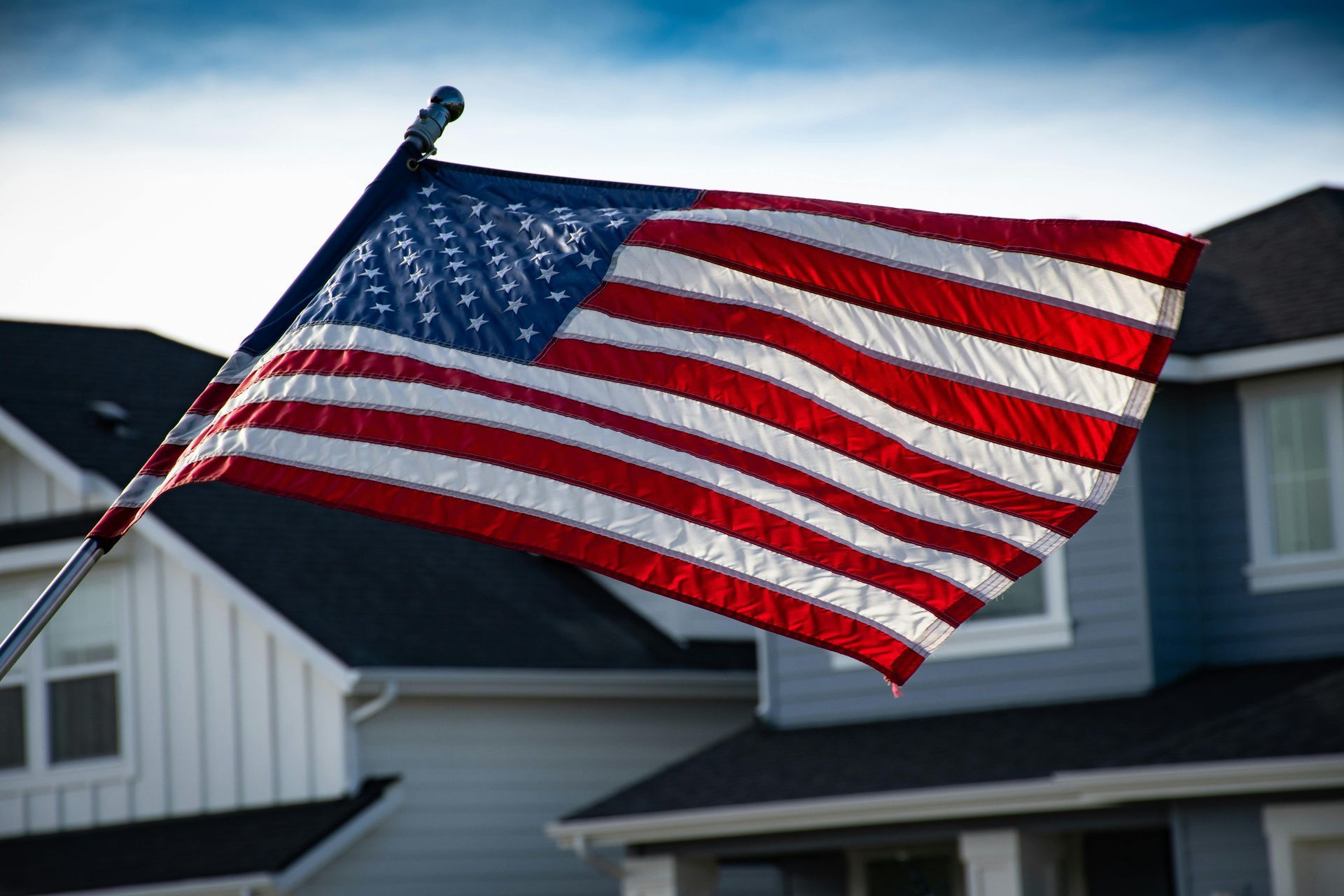
As the 4th of July draws near, the excitement in the air is palpable across Central Florida. People are gearing up for fireworks, barbecues, and family gatherings. Yet, beyond the parades and parties, there’s a deeper reflection this holiday offers: what does it truly mean to live in a free country , and why does Florida stand out as one of the freest states in the nation? This Independence Day, let’s take a moment to reflect on what freedom means to us—not just as Americans, but also as residents of one of the most liberty-centered states in the U.S. As we celebrate our nation’s birth, let’s remember why we are so fortunate to live in a country that champions personal liberty and why Florida offers such a distinctive flavor of that freedom. America: A Nation Built on the Foundation of Freedom The 4th of July marks the birth of a nation founded on the idea of freedom—the notion that all men and women have the right to life, liberty, and the pursuit of happiness. The Declaration of Independence, signed on this day in 1776, set into motion a new world order: one in which individuals could chart their own destinies, free from the tyranny of an overreaching government. What It Means to Live in a Free Country To live in a free country like the United States is to enjoy rights and opportunities that are the envy of much of the world. Here, you are empowered to: Speak Your Mind : We enjoy the freedom of expression—whether through art, media, social activism, or casual conversation. In America, people have the liberty to speak out without fear of government retribution. Worship as You Choose : Freedom of religion allows us to practice our faith openly, or to not practice a faith at all, without persecution. Live Where You Choose : From bustling cities to tranquil rural areas, Americans have the freedom to choose their environment, lifestyle, and community. Pursue Your Dreams : Whether you want to start a business, change careers, or make a bold move, the United States offers countless opportunities for personal growth and success. It’s a country that values hard work and offers the chance for all citizens to rise to their potential. America’s founding principles are what set it apart on the global stage: freedom, opportunity, and the protection of individual rights. And this freedom is something we should never take for granted. Florida: One of the Freest States in the Nation While all states in the U.S. are built upon the foundation of freedom, Florida stands out as one of the freest states in the country. Florida offers an environment that is uniquely supportive of individual liberty, personal rights, and economic freedom. As a resident of Central Florida, you have a front-row seat to one of the most freedom-driven states in America. What Makes Florida So Free? Florida’s commitment to freedom is rooted in its values and its policies, which allow individuals the liberty to live life on their own terms. Here are just a few reasons why Florida stands as one of the freest states in the nation: Economic Freedom : Florida is one of the most business-friendly states in the U.S., largely due to its no state income tax policy. This means residents get to keep more of their earnings, and businesses thrive with fewer restrictions. Entrepreneurs flock to Florida for the opportunity to build their businesses in a state that prioritizes personal financial freedom. Lower Taxes and Fewer Regulations : Florida keeps taxes low and regulations minimal, which empowers both individuals and businesses to thrive. Whether you’re a homeowner, a small business owner, or an investor, the state’s policies give you the freedom to control your financial future. Personal Liberty : Florida has consistently championed personal freedom in areas like gun ownership, property rights, and freedom of speech. This commitment to individual rights ensures that Floridians can live their lives as they see fit, without unnecessary government interference. A Diverse and Open-Minded Population : Florida has long been a melting pot of cultures, races, and ideologies. This diversity fosters an atmosphere of tolerance, respect, and freedom of expression. Whether you live in the multicultural buzz of Miami or the quieter communities of Central Florida, the state’s residents share a common belief in the importance of individual freedom. Freedom of Movement : Florida’s natural beauty and endless opportunities for recreation give residents the freedom to live an active, outdoor lifestyle. Whether it’s enjoying a day at the beach, hiking in a state park, or boating on one of the state’s many lakes and rivers, Floridians can enjoy an unparalleled lifestyle of freedom and adventure. Living Free in Central Florida Central Florida is a microcosm of the freedoms that the state of Florida and the United States provide. Here, in places like Orlando, Winter Park, or Kissimmee, you’ll find a diverse mix of cultures, backgrounds, and dreams. The freedom to live your life as you see fit is evident everywhere you look—from the booming tourist industry that provides economic freedom to thousands, to the endless opportunities for recreation and exploration in the area’s parks and lakes. What Does It Mean to Live Free in Central Florida? The Freedom to Pursue Your Dreams : Central Florida’s thriving economy offers residents the opportunity to build businesses, work in diverse industries, and chase their ambitions. The region’s growth in tech, healthcare, and entertainment has made it a hub for innovation and creativity. The Freedom to Enjoy Nature : Central Florida offers easy access to some of the most beautiful natural landscapes in the state. Whether you’re out on the water in a kayak, watching a sunset over the Gulf Coast, or hiking through the wilderness of Wekiwa Springs State Park, living here gives you the freedom to reconnect with nature. The Freedom to Be Yourself : The community in Central Florida is inclusive, open-minded, and diverse. Residents are free to express their individuality, whether through cultural celebrations, art, or activism. The Freedom to Participate : Florida is known for its open, competitive political system where residents are encouraged to vote, run for office, and speak out on issues that matter to them. Central Floridians are free to be involved in local governance and shape the future of their communities. Why Celebrate Freedom on the 4th of July? The 4th of July is not just a day for fireworks and barbecues—it’s an opportunity to reflect on the unique freedoms we enjoy as Americans and Floridians. Here in Central Florida, we are especially fortunate to live in one of the freest regions of one of the freest states in the nation. This Independence Day, let’s take a moment to truly appreciate the freedoms we often take for granted. From the liberty to speak our minds, to the ability to live where we choose, to the chance to build a future on our own terms, freedom is the thread that ties us all together. How Can We Honor Our Freedom on the 4th of July? Here are a few ways to celebrate and honor the freedoms that make America and Florida so special: Celebrate Your Community : Spend time with friends and family, and celebrate the diversity and liberty that make Central Florida unique. Support Local Freedom : Support small businesses and entrepreneurs who help create economic freedom in your community. Reflect on the Past : Learn about the history of the United States and Florida, and how we’ve come to enjoy the freedoms we hold dear today. Get Involved : Whether it’s voting, volunteering, or advocating for what you believe in, participate in your community and use your freedom to make a positive impact. Conclusion Living in a free country like the United States is a privilege, and living in one of the freest states—Florida—is a blessing. As we celebrate the 4th of July, let’s remember why freedom is worth cherishing, defending, and celebrating. In both America and Florida, we have the liberty to chart our own paths, build our own futures, and live our lives according to our own values. So, as the fireworks light up the night sky and the sounds of celebration fill the air, take a moment to appreciate the freedom you have. Freedom isn’t just something we inherit—it’s something we live, protect, and celebrate every day. Happy 4th of July, Florida! 🇺🇸🎇🎉

Celebrate Independence Day 2025 with Insurance Alliance: Your Guide to Central Florida’s 4th of July Events As Independence Day approaches, Central Florida is gearing up for a spectacular celebration filled with fireworks, festivities, and family fun. At Insurance Alliance, we understand the importance of community and the joy that comes with celebrating our nation's freedom. We're proud to serve the vibrant communities of Central Florida, providing tailored insurance solutions to protect what matters most to you. To help you make the most of this patriotic holiday, we've compiled a list of some of the top 4th of July events happening across Central Florida. Whether you're in Orlando, Tampa, or the surrounding areas, there's something for everyone to enjoy. Orlando Area Celebrations Fireworks at the Fountain – Lake Eola Park, Orlando Join the City of Orlando for the 47th annual Fireworks at the Fountain. This free event features live entertainment, family-friendly activities, and a spectacular fireworks display over Lake Eola. Festivities begin at 4:00 PM, with fireworks starting at 9:10 PM. Red Hot & Boom – Cranes Roost Park, Altamonte Springs Celebrate Independence Day a day early at Red Hot & Boom on July 3rd. This free event includes live music, food vendors, and one of Central Florida's most impressive fireworks shows. Festivities run from 5:00 PM to 10:00 PM. 4th of July Celebration – Avalon Park, Orlando Head to Downtown Avalon Park for a community celebration featuring a bike parade, live performances, vendors, and a fireworks display at 9:00 PM. The event runs from 5:00 PM to 9:00 PM. Tampa Bay Area Festivities Boom by the Bay – Julian B. Lane Riverfront Park, Tampa Tampa's premier Independence Day celebration returns with Boom by the Bay. Enjoy family-friendly activities, live entertainment, an Apple Pie Throwdown, and a stunning fireworks display. Festivities begin at 4:00 PM. July 4th Boat Parade – Tampa Riverwalk Celebrate on the water with the July 4th Boat Parade along the Tampa Riverwalk. The event features decorated boats, a water ski show, and fireworks. Spectators can enjoy the festivities for free, with VIP viewing options available. Winter Garden's Party in the Park Experience one of the best fireworks shows in Central Florida at Winter Garden's Party in the Park. Held at Newton Park on Lake Apopka, this free event includes live music, family activities, and a fireworks display at 9:15 PM. Festivities start at 6:00 PM. Celebrating Safely with Insurance Alliance While enjoying these festive events, it's essential to keep safety in mind. At Insurance Alliance, we're committed to helping you protect your home, business, and loved ones. Our comprehensive insurance solutions are designed to provide peace of mind, so you can focus on celebrating the holiday. Homeowners Insurance Ensure your home and belongings are protected against unexpected events. Our homeowners insurance policies offer coverage for damages, theft, and more. Auto Insurance Traveling to events? Our auto insurance plans provide coverage for accidents, theft, and other incidents, keeping you protected on the road. Business Insurance For business owners participating in holiday events, our business insurance solutions offer protection against liabilities, property damage, and other risks. Contact Insurance Alliance Today As you celebrate Independence Day, let Insurance Alliance be your trusted partner in protection. Our team is here to provide personalized insurance solutions tailored to your needs. Contact Us: Phone: 321-900-0068 Email: insurance@floridainsurancealliance.com Website: www.floridainsurancealliance.com Wishing you a safe and joyful 4th of July from all of us at Insurance Alliance!

Running a restaurant in Central Florida is both rewarding and risky. From slip-and-fall accidents to hurricane-related property damage, restaurant owners must be ready to navigate insurance claims when the unexpected happens. Understanding how restaurant insurance claims work can help you minimize stress, speed up the process, and ensure your claim is paid fairly. Why Claims Happen: Common Restaurant Incidents in Central Florida Central Florida’s unique environment and bustling hospitality industry contribute to a wide range of claims: Severe weather events causing water or wind damage Food spoilage after power outages Customer injuries like slips or burns Kitchen fires from grease buildup or faulty wiring Theft or vandalism during off hours Liquor-related incidents when serving alcohol Step-by-Step: Filing a Restaurant Insurance Claim Assess the Situation and Ensure Safety: If there's an injury or damage, prioritize safety. Turn off equipment, clear the area, and call emergency services if needed. Document Everything: Take detailed notes and photos of any injuries or damage. Save receipts, incident reports, repair estimates, and any police reports. Notify Your Insurance Provider: Report the incident to Insurance Alliance immediately. Prompt reporting ensures a faster claims process. Work With Adjusters: Your insurer will assign a claims adjuster to evaluate the loss. Be cooperative, provide requested documentation, and clarify any concerns. Keep Records of All Communication: Track emails, phone calls, and meetings related to the claim. Follow Up: If repairs are needed, get written estimates. Your policy may require using approved vendors. What Your Policy May Cover Depending on your coverage, your restaurant insurance claim may include: Repairs to property and equipment Replacement of spoiled food inventory Medical costs for customer or employee injuries Legal defense fees for liability claims Lost income due to business interruption Third-party damages from alcohol-related incidents (if liquor liability coverage is included) Tips to Make the Claims Process Easier Keep your insurance policy documents accessible Conduct regular risk assessments Install security cameras and backup power sources Maintain up-to-date records of inventory and assets Stay in contact with your Insurance Alliance advisor for proactive policy reviews Avoid Common Pitfalls Delaying the claim report can lead to denial or slower resolution Inadequate documentation may reduce your payout Lack of proper coverage leaves gaps in your protection Why Insurance Alliance Is the Right Partner At Insurance Alliance, we work with restaurants across Central Florida to ensure their policies offer full protection—and that their claims are handled with speed, clarity, and care. We understand the unique challenges local restaurants face and are here to help you navigate any crisis. Get Expert Help Before You Need It Preparing for the worst is part of running a successful restaurant. With Insurance Alliance on your side, you gain a partner that knows the industry, the region, and the importance of fast, reliable claims service. Contact us today to review your restaurant insurance policy and make sure you’re prepared for any claim that comes your way.

General Liability Insurance: This is foundational coverage for all smoothie shops. It protects against customer injury, property damage, and legal claims. Commercial Property Insurance: Essential for covering damage to your storefront, kitchen equipment, juicers, blenders, and decor. Business Interruption Insurance: Replaces lost income if your business is forced to temporarily close, often due to hurricanes or equipment failure. Workers’ Compensation Insurance: Required in Florida for businesses with employees. It covers medical bills and lost wages after work-related injuries. Step 3: Consider Specialty Coverages Product Liability Insurance: Covers claims of illness or injury from your smoothies or juices—especially important if you use nut-based ingredients or supplements. Equipment Breakdown Insurance: Helps cover repairs for your high-powered blenders and refrigeration units. Cyber Liability Insurance: If you collect digital payments or store customer data, this coverage protects against data breaches and cyberattacks. Step 4: Work With a Local Insurance Provider An insurance agency familiar with Central Florida’s unique weather patterns and business environment can tailor coverage that addresses regional challenges. From Orlando to Tampa, Insurance Alliance helps juice bar owners prepare for every scenario—from severe storms to staffing changes. Step 5: Review and Update Regularly Your insurance needs will change as your smoothie shop grows. Whether you open a second location, expand your menu, or add delivery drivers, it’s vital to update your policy to reflect those changes. Benefits of Choosing Insurance Alliance Local expertise in Central Florida’s hospitality market Customized insurance solutions for food and beverage businesses Responsive claims support and expert guidance Flexible plans for startup shops and established juice bars Get a Quote from Insurance Alliance Today Insurance Alliance offers trusted, affordable insurance for smoothie shops and juice bars across Central Florida. Whether you're blending up protein shakes in Winter Park or operating a vegan juice bar in Sarasota, we’ll craft the right coverage to keep your business running smoothly. Reach out to Insurance Alliance today for a personalized insurance consultation—and protect the future of your smoothie shop with confidence.
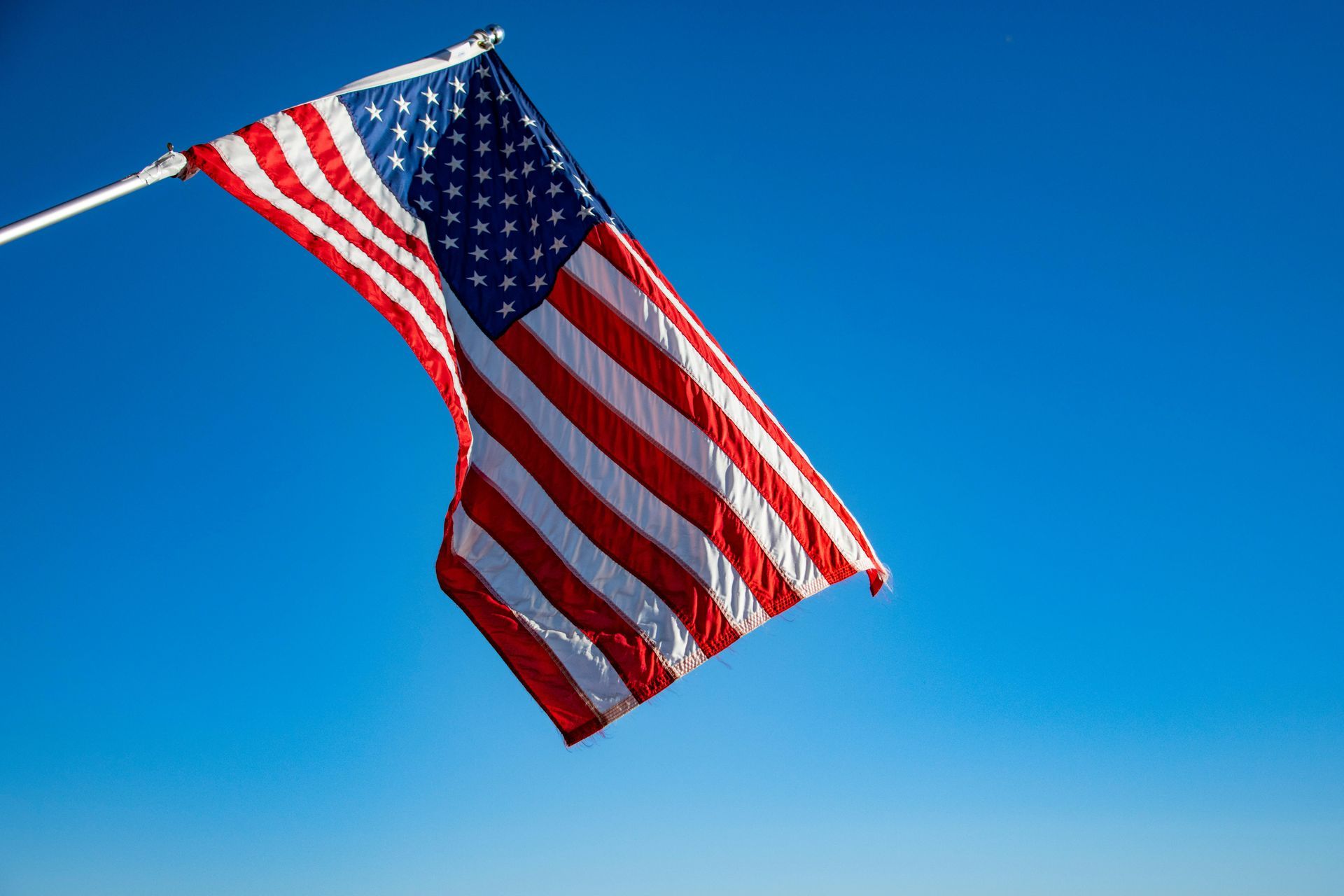
The 4th of July is a day to celebrate freedom, enjoy good company, and have a blast with family and friends. If you're in Central Florida, you're in luck—this region offers a fantastic mix of outdoor activities, scenic views, and vibrant community events. Whether you’re hosting a backyard BBQ, attending a parade, or heading to a local fireworks display, there’s no shortage of ways to make this Independence Day special. Here’s your ultimate guide to planning the perfect 4th of July party in Central Florida! Step 1: Pick the Perfect Location Backyard Bash: Central Florida’s warm summer evenings are ideal for hosting an outdoor celebration. A backyard BBQ or poolside party is a perfect way to enjoy the sun, great food, and company. If you live near a lake or have access to a scenic spot, you can turn it into a lakeside event, with a DIY dock or waterfront view. Public Parks & Beaches: Central Florida boasts beautiful parks and beaches, many of which host 4th of July celebrations. Some popular spots include: Lake Eola Park (Orlando): Known for its picturesque lake and central location, Lake Eola hosts a famous fireworks show and picnic areas perfect for socializing. Cocoa Beach : If you're near the coast, this is an excellent location for a laid-back beach party. Expect some fantastic fireworks displays over the ocean. Wekiwa Springs State Park : For nature lovers, this is the spot for a serene day out, followed by a fun evening of fireworks or grilling. Fireworks Viewing Parties: If you’re hoping to catch a great fireworks show, consider setting up a viewing party at spots like: ICON Park (Orlando): Enjoy the fireworks along with amazing views of the Orlando skyline from the ICON Orlando 360 observation wheel. Universal CityWalk (Orlando): Universal Studios holds their annual 4th of July concert and fireworks show, which is perfect for both locals and tourists. Step 2: Party Themes & Decorations Get creative with your 4th of July decor! Here are some fun theme ideas to set the tone for your celebration: Classic Americana: Think red, white, and blue in everything from plates to streamers. Vintage American flags, stars and stripes, and patriotic bunting add a nostalgic feel to your setup. Lakeside BBQ: If you’re near a body of water, consider nautical accents like anchors, rope, and beach balls, mixed with red, white, and blue décor. Star-Spangled Picnic: Use picnic baskets, gingham tablecloths, mason jars, and string lights to create a charming, rustic vibe. Make the party extra Instagram-worthy with cute signage and fresh flowers. DIY Decorations: Balloon Arches: Use red, white, and blue balloons to create an arch for your entryway or around your food table. Balloon kits are easy to find and make for a dramatic visual. Firecracker Centerpieces: Use empty toilet paper rolls or cardboard tubes wrapped in paper to create "firecracker" table centerpieces. You can decorate them with star stickers and metallic ribbons for a sparkly touch. DIY Photo Booth: Set up a photo booth with a patriotic backdrop and props like American flag sunglasses, hats, and sparklers. Step 3: Food & Drinks No 4th of July party is complete without a delicious spread! Whether you're grilling up a feast or opting for potluck-style, here are some classic and festive ideas: Grilled Favorites: Burgers and Hot Dogs : You can’t go wrong with these classics. Offer a variety of toppings like pickles, onions, cheese, lettuce, tomato, and ketchup/mustard/mayo. BBQ Ribs or Chicken : Slow-cooked ribs glazed with BBQ sauce or grilled chicken wings will be a hit. Grilled Corn on the Cob : A perfect side dish—season with butter, salt, and pepper or get creative with chili powder and lime. Side Dishes: Potato Salad : The creamy, tangy dish is a 4th of July favorite. Coleslaw : Sweet and tangy slaw is the perfect pairing for anything off the grill. Caprese Salad : Fresh mozzarella, tomatoes, basil, and balsamic make for a refreshing summer dish. Chips and Dip : Keep it simple with tortilla chips and a variety of dips (salsa, guacamole, or a creamy ranch dip). Desserts: Red, White, and Blue Cupcakes : Decorate with white frosting and blue and red sprinkles for a festive touch. Berry Trifle : Layer strawberries, blueberries, and whipped cream for a patriotic, crowd-pleasing dessert. Flag Cake : Make a white sheet cake and decorate it to resemble the American flag with blueberries and strawberries. Drinks: Patriotic Punch : Serve a refreshing, colorful drink made with lemonade, blue sports drink, and cranberry juice. Beer, Wine, & Cider : Offer a variety of refreshing drinks that suit all tastes. Mocktails : For guests who prefer non-alcoholic beverages, create a fun "mocktail" bar with options like sparkling lemonade, fruit punches, or a virgin mojito. Step 4: Fun & Games Keep the fun going with these patriotic party games and activities: Backyard Games: Cornhole : A classic game that’s perfect for outdoor fun. You can even get a red, white, and blue cornhole set for extra flair. Horseshoes : Another great outdoor game that’ll keep your guests entertained. Water Balloon Toss : Beat the heat with a fun water balloon game. It’s perfect for families with kids and guarantees lots of laughs! Craft Activities for Kids: DIY Flag Crafts : Set up a table where kids can create their own American flags using craft supplies like construction paper, markers, and glue. Firework Art : Using string dipped in paint, children can create their own "fireworks" on paper. Step 5: Fireworks & Safety No 4th of July celebration is complete without fireworks! Whether you're hosting a DIY fireworks show or attending a professional display, here are some tips: DIY Fireworks : If you're planning to light your own fireworks, make sure to: Check local laws and firework regulations in your area (firework restrictions can vary by county or city). Always have a bucket of water or a hose nearby in case of accidents. Designate a safe area for lighting fireworks away from crowds, trees, and structures. Never allow children to handle fireworks unsupervised. Attend a Public Fireworks Show : Many Central Florida cities host fantastic firework displays, including: Lake Eola Park (Orlando): Famous for its evening fireworks show over the lake. Celebration Town Center : This picturesque Disney-themed town hosts an annual 4th of July celebration with fireworks and live entertainment. Titusville's Fireworks : A spectacular show over the Indian River near Kennedy Space Center—one of the best in the area. Step 6: Plan for the Weather In Central Florida, the weather can be unpredictable in the summer, with rain showers being a possibility. Be sure to have a backup plan in place, such as: Renting a tent or marquee to provide shade and shelter. Have indoor space ready for guests to move into if needed. Keep an eye on the forecast and adjust your outdoor plans accordingly. Conclusion From delicious food and fun games to breathtaking fireworks and patriotic décor, planning a 4th of July party in Central Florida offers endless possibilities for a memorable celebration. Embrace the sunshine, celebrate America’s birthday with style, and most importantly, enjoy the time spent with family and friends. No matter how you choose to celebrate, make sure to capture the moment with photos, enjoy every firework, and toast to freedom and fun! Happy 4th of July! 🎆🎉
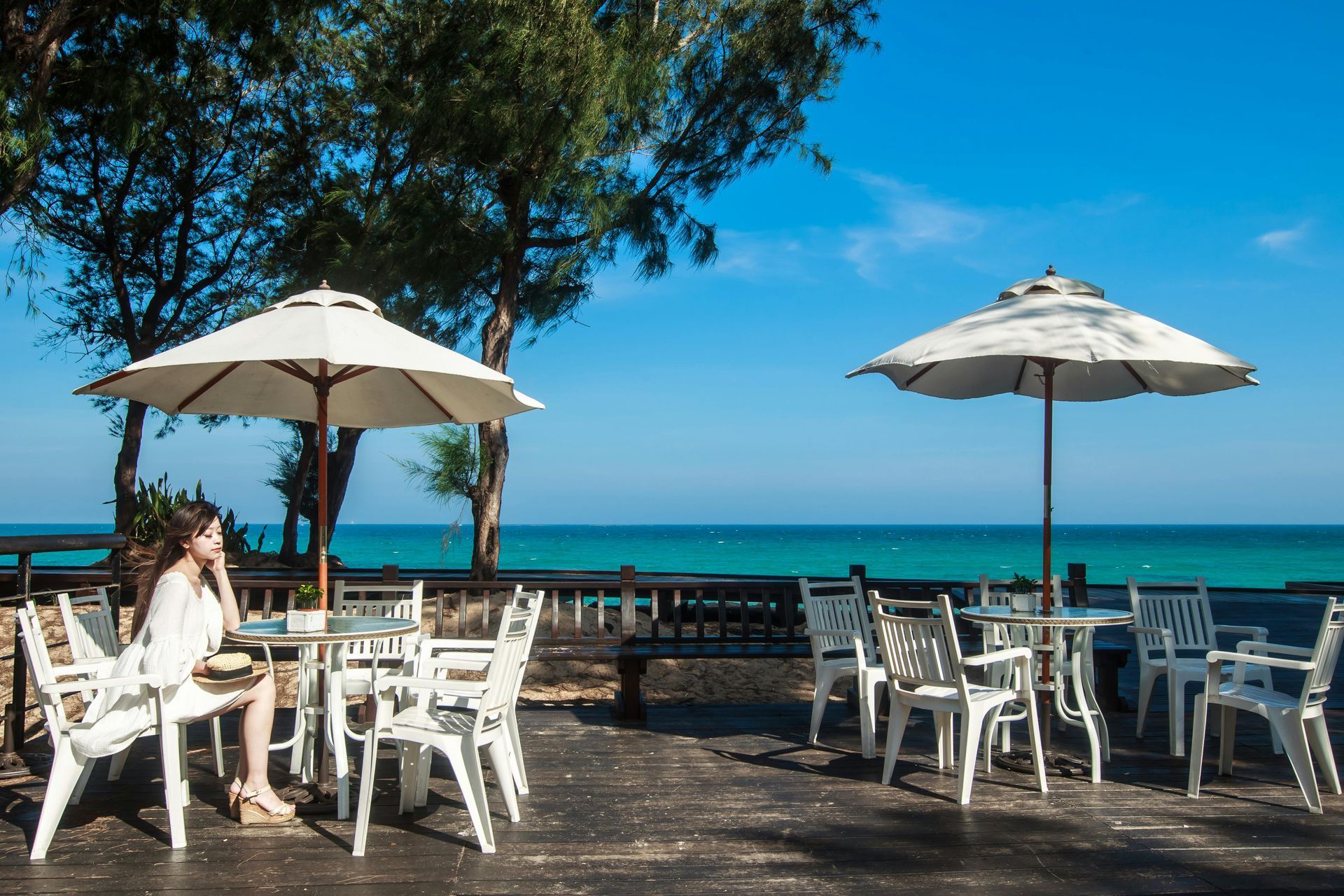
Central Florida’s restaurant scene is vibrant—but it’s also vulnerable. Between hurricanes, power outages, fires, and other unexpected events, your restaurant could be forced to close its doors with little warning. That’s where business interruption insurance becomes a lifeline. What Is Business Interruption Insurance? This coverage reimburses you for lost income and operating expenses when your restaurant is closed due to a covered loss, such as storm damage or a fire. It's not a standalone policy but typically added to a commercial property or business owner's policy. Why It Matters in Central Florida Hurricane Season: Storm-related closures are common, especially in coastal communities like Cocoa Beach and Tampa Bay. Flooding and Water Damage: Sudden downpours and overwhelmed drains can lead to temporary closures. Fires and Kitchen Accidents: An electrical fire or fryer mishap can shut your doors for weeks. Power Outages: Extended outages can cause spoilage, disrupt service, and delay reopening. What Does It Cover? Lost income during the closure period Ongoing expenses such as rent, payroll, utilities Temporary relocation expenses (if needed) What It Doesn’t Cover Income losses not tied to a covered property damage event Utility outages not caused by physical property damage Losses due to pandemics or government shutdowns (unless specifically endorsed) How to Get the Right Coverage Work with a Central Florida-based agency like Insurance Alliance to ensure your policy includes adequate coverage limits, restoration periods, and appropriate endorsements for local risks. Real-World Example After Hurricane Ian, several Orlando and Tampa restaurants shut down for over a week due to flooding and supply delays. Businesses with business interruption insurance were able to keep paying staff and cover rent—those without it struggled. Stay Resilient With Insurance Alliance We help restaurants across Central Florida safeguard against the unexpected. With tailored business interruption coverage, you can weather the storm—literally and financially. Contact Insurance Alliance today to review your restaurant insurance and ensure you're covered when it matters most.
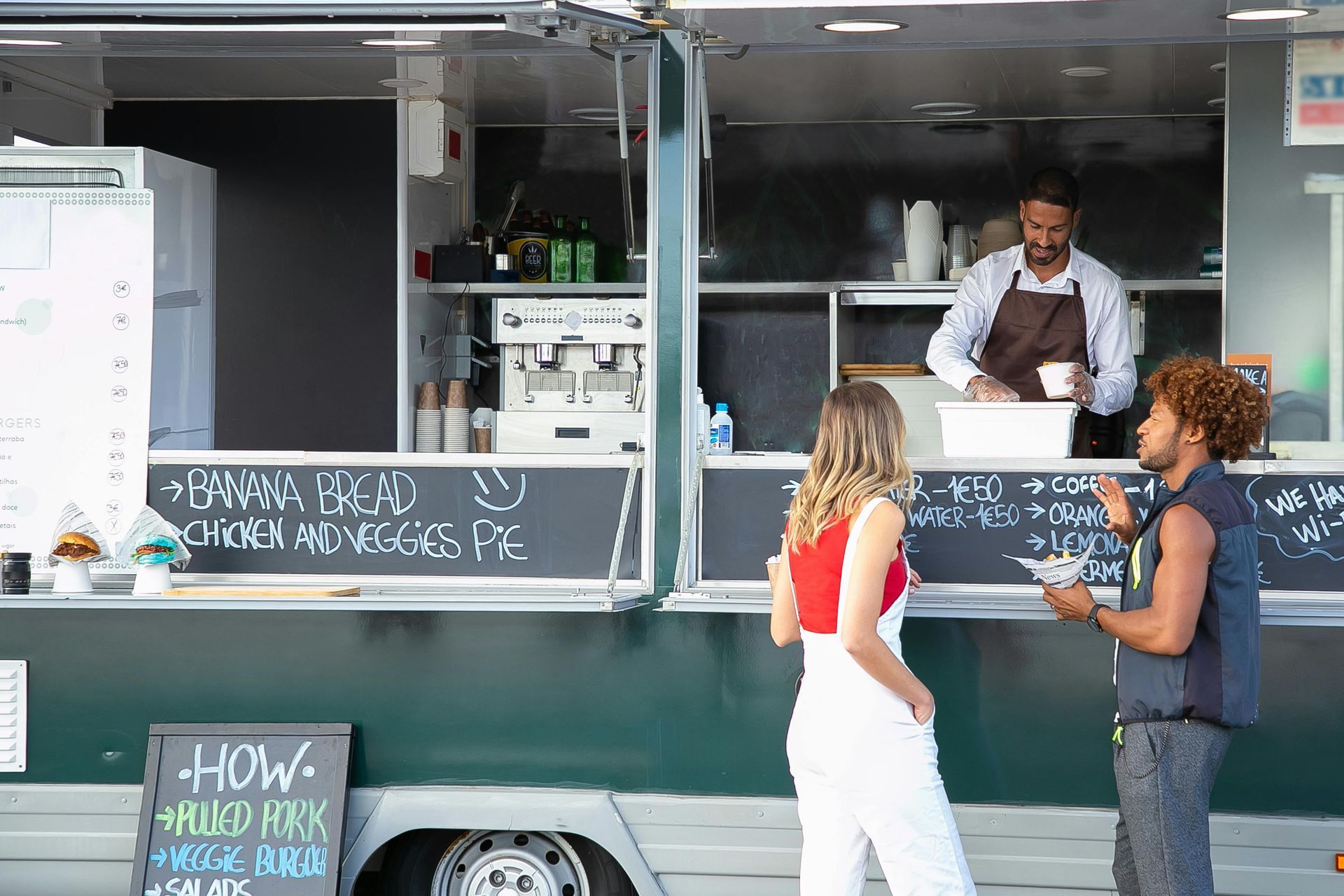
Running a food truck in Central Florida combines culinary creativity with the freedom to take your business on the road—but it also means facing a unique set of risks. Whether you’re parked at a festival in Orlando, catering a private event in Winter Park, or serving lunch to office workers in Kissimmee, insurance is essential to protect your investment, staff, and reputation. Why Food Truck Insurance Is Essential Mobile food vendors face a wide range of exposures. From kitchen fires and customer injuries to auto accidents and spoiled food, even a single incident can impact your operations. Insurance provides peace of mind so you can focus on your menu and your customers, knowing your business is protected from the unexpected. Key Insurance Coverages for Food Trucks in Central Florida Commercial Auto Insurance Since your food truck is also your place of business, you’ll need a commercial auto policy. This coverage protects your vehicle in the event of an accident, and it can also cover equipment damage caused by collisions or vandalism. General Liability Insurance General liability insurance covers third-party claims involving injuries or property damage. If a customer trips near your serving area or claims food poisoning, this policy can help cover legal costs, medical expenses, and settlements. Commercial Property Insurance This policy covers your business property, including kitchen equipment, generators, and signage, against risks like theft, fire, and severe weather. This is especially important in Central Florida where hurricanes and tropical storms are common. Business Interruption Insurance If your food truck is temporarily out of commission due to a covered event, business interruption insurance can help replace lost income and cover ongoing expenses like loan payments and payroll. Food Spoilage Insurance Food trucks rely on refrigeration and storage equipment. If a power failure or mechanical issue causes food spoilage, this coverage helps reimburse you for the loss. Workers' Compensation Insurance In Central Florida, food truck operators with employees are required to carry workers’ compensation insurance. This policy covers medical expenses and lost wages if a team member is injured on the job. Cyber Liability Insurance If your food truck accepts digital payments or online orders, cyber liability insurance protects you against data breaches, payment fraud, and associated costs. Optional Coverages to Consider Depending on how your business operates, you might also want: Employment Practices Liability Insurance (EPLI) for claims related to hiring, termination, or workplace conduct. Umbrella Insurance to provide additional liability protection beyond standard policy limits. Central Florida Business Considerations Food trucks in Central Florida must comply with state and local health regulations, obtain mobile vending permits, and often maintain minimum insurance requirements to operate at events or on public property. Make sure your policies meet these obligations. Why Choose Insurance Alliance for Your Food Truck Coverage At Insurance Alliance, we understand the mobile nature of food truck businesses and the risks specific to Central Florida. We’ll help you design a policy package that protects your vehicle, equipment, income, and team—so you can stay on the road and in business. Whether you're new to the food truck scene or expanding your fleet, we’re here to help you roll forward with confidence. Get Covered and Keep Cooking Contact Insurance Alliance today to get a free quote and find the right food truck insurance for your Central Florida-based business.

Running a CPA firm in Central Florida means more than managing numbers—it means managing risk. With tax regulations evolving, client data at risk, and natural disasters looming, the right insurance coverage ensures your accounting practice remains resilient. Whether you're a solo CPA or operate a mid-size firm, Insurance Alliance offers a full spectrum of protections tailored to your needs. Professional Liability Insurance: Your First Line of Defense A minor calculation error or a missed deduction can lead to serious consequences. Professional liability insurance covers defense costs and damages if a client alleges negligence or financial harm. In Florida’s litigious business climate, E&O insurance is a non-negotiable for CPAs. Cyber Liability Insurance: Defending Your Digital Office Most CPA firms use cloud-based accounting tools and store sensitive client information online. Cyber liability insurance provides essential protection in the event of a hack, ransomware attack, or data breach. It helps cover legal fees, customer notification, and credit monitoring services—safeguarding your firm’s finances and reputation. Property and Liability Protection Whether you work from a commercial office or a home setup, property insurance protects against fire, theft, and Florida’s frequent weather events. General liability insurance covers bodily injury and property damage at your office or during work-related events. Workers’ Compensation and EPLI Florida requires workers’ comp for businesses with employees. If someone on your staff suffers a job-related injury, this policy covers medical expenses and lost wages. As your team grows, employment practices liability insurance (EPLI) helps protect against claims of wrongful hiring, harassment, or retaliation. Business Interruption and Equipment Protection Power outages, hurricanes, and broken servers can halt your work. Business interruption insurance covers income loss during a closure, while equipment breakdown insurance ensures your technology is quickly repaired or replaced. Auto and Mobile Device Coverage If you or your staff use vehicles for business, commercial auto insurance is essential. Inland marine insurance covers mobile tools like laptops or tablets that travel between meetings and client sites. Florida-Specific CPA Challenges In Central Florida, CPAs face a longer storm season and a dynamic client base—including retirees, hospitality businesses, and real estate investors. Insurance Alliance provides coverage designed for the local accounting landscape. Insurance Alliance: Experts in CPA Coverage We work closely with CPAs across Central Florida to build insurance plans that reflect their services, risks, and goals. Whether you're preparing audits, handling payroll, or offering tax planning, we help protect your operations with flexible, affordable coverage. Reach out to Insurance Alliance today to build an insurance solution that strengthens your firm, reassures your clients, and supports your growth as a Central Florida CPA.

Running a restaurant in Central Florida involves much more than great food and service—it requires careful planning and risk management to ensure your business thrives. From kitchen accidents and customer injuries to equipment breakdowns and unexpected closures, restaurant owners face a wide range of risks. The right insurance coverage can protect your restaurant from financial loss and help you maintain steady operations, even when challenges arise. Why Restaurant Insurance Is Essential Restaurants are exposed to unique risks on a daily basis. A slip-and-fall in the dining room, a grease fire in the kitchen, or a foodborne illness claim could not only result in costly legal fees but also damage your reputation. Restaurant insurance acts as a safety net to cover these liabilities, keeping your business secure and your staff and customers protected. Key Insurance Coverages for Restaurants in Central Florida General Liability Insurance General liability insurance is a must-have for any restaurant. It covers third-party injuries, property damage, and advertising injury claims. If a customer slips on a wet floor or alleges food poisoning, this policy can help pay for legal expenses and medical bills. Commercial Property Insurance Whether you own or lease your space, commercial property insurance protects your restaurant building, kitchen equipment, inventory, and furniture from risks like fire, theft, and vandalism. In a region like Central Florida, where hurricanes and power outages can disrupt business, this coverage is essential. Business Interruption Insurance If a covered event—like a fire or hurricane—forces your restaurant to close temporarily, business interruption insurance can replace lost income and help pay ongoing expenses like payroll and rent. Liquor Liability Insurance If your restaurant serves alcohol, liquor liability insurance is crucial. It protects your business if a customer becomes intoxicated and causes harm to themselves or others. In Central Florida, this coverage is often required to maintain a liquor license. Food Spoilage Insurance Food spoilage coverage protects your perishable inventory in the event of equipment failure or power outages. This is especially important for restaurants that rely on fresh ingredients. Cyber Liability Insurance If you accept online reservations or store customer payment data, cyber liability insurance can help cover the costs of data breaches, legal fees, and notification expenses. Workers' Compensation Insurance In Central Florida, any restaurant with employees is required by law to carry workers’ compensation insurance. This policy helps cover medical expenses, rehabilitation, and lost wages if an employee is injured on the job. Additional Coverage Options Depending on your business model, you may also want to consider: Employment Practices Liability Insurance (EPLI) for claims related to wrongful termination, discrimination, or harassment. Commercial Auto Insurance if your restaurant offers delivery services. Umbrella Insurance to provide extra protection beyond your liability policy limits. Central Florida-Specific Considerations Restaurants in Central Florida must adhere to strict health codes and licensing requirements. Having the appropriate insurance is not just a smart business move—it may be required by your landlord, lenders, or local agencies. Additionally, some counties may have their own regulations, so it's important to stay informed. How Insurance Alliance Can Help At Insurance Alliance, we understand the unique risks Central Florida restaurants face. We work with independent cafes, franchise chains, and fine dining establishments to create customized insurance solutions that fit your needs and budget. Our local knowledge and industry expertise allow us to provide tailored guidance, so you’re never underinsured or paying for coverage you don’t need. Whether you're just opening your first location or managing multiple restaurants, we’ll help you secure the right coverage to protect your people, your property, and your profits. Contact Insurance Alliance Today Don’t wait until a disaster disrupts your business. Contact Insurance Alliance today to get a free restaurant insurance quote and discover how we can help you serve with confidence.
